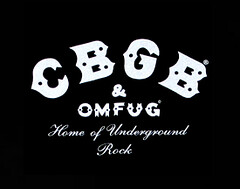Pat Ivers and Emily Armstrong continue sorting through their archives of punk-era concert footage as it’s digitized for the Downtown Collection at N.Y.U.’s Fales Library.
New York and London were the first cities to feel the heartbeat of punk, then bands started springing up in Los Angeles and San Francisco. Like a contagion, the new music spread and mutated from basement to garage, from Athens, Ga., to Santa Cruz.
It was thrilling for New Yorkers to hear about these regional bands and by 1980, we were finally seeing these alternative bands tour. The Suburbs arrived in New York from Minneapolis that summer. They brought the heartland to us with an urgent bounce, playing a brand of danceable new wave that was as funky and melodious as it was infectious. This video clip of their song, “Music For Boys,” captures them at Danceteria when they were at their muscular, modern rock best.
Chan Poling and Beej Chaney were the two front men, on keyboards and lead vocals, respectively. Friends since high school, they went out to Los Angeles in 1974 to attend Cal Arts. Chan played in a local punk band, The Technocats. The exposure to so many musicians and artists inspired him, and he began writing music — he just wasn’t sure for whom or what.
Returning home to Minneapolis in 1977, he found himself listening to a band, Suicide Commandos, formed by his childhood friend, Chris Osgood. “They were the only band in town that played the kind of music that was in my head,” Poling recalls, “I needed people to play with like that.”
Chris Osgood introduced him to Michael Halliday and Bruce Allen, who along with Beej and drummer Hugo Klaers, became The Suburbs. They never looked back. The band lived and rehearsed in a warehouse basement that fortuitously had an abandoned bar attached to it.
They couldn’t get gigs because there were no clubs that booked bands with original music. So they began throwing their own parties with a keg or two and a few bucks admission at the door. The Suburbs performed, along with other locals like The Replacements, until the success of their parties caught the eye of a local promoter, who ran a place called Jay’s Longhorn bar. One visit to their basement, and he changed his booking policy from jazz to punk, hiring The Suburbs for the next night. The Longhorn became the CBGBs of Minneapolis. Read more…






